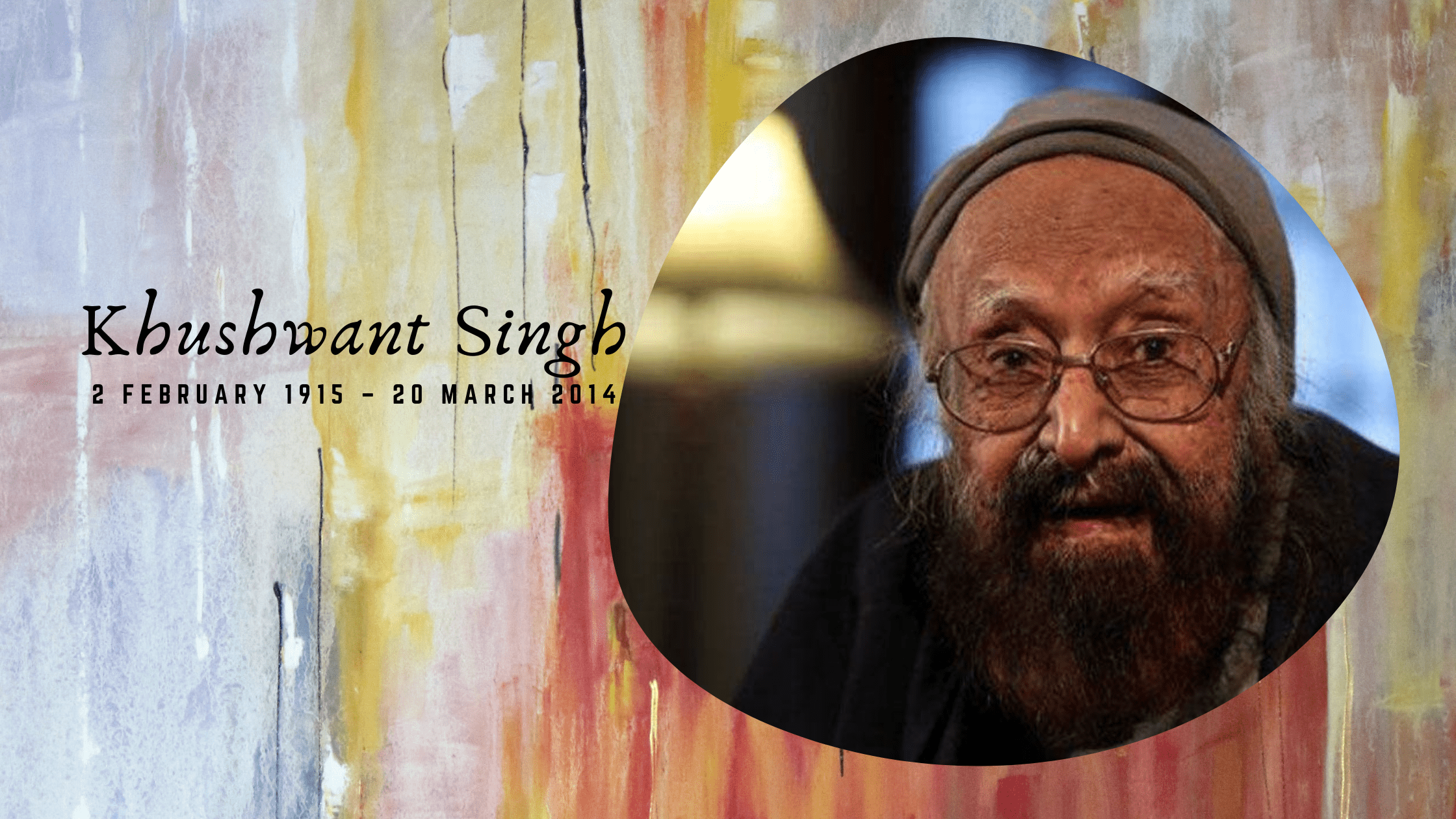The first time I was introduced to the writings of the veteran Khushwant Singh was in the secondary classes of my schooling. The short story that was taught as a chapter of the English text book was ‘The Portrait of a Lady.’ It’s a memoir about his grandmother and her last days with him. Even as a child, I was mesmerized by his nuanced portrayal of his grandmother and her eccentricities. It was indeed like a portrait coming alive in a child’s mind. Well, the association ended with writing answers about the text in the class tests but the fact that I remembered it even after the school days can be ascribed to his way of putting the words together so perfectly that they get etched forever in your mind. They generate a sense of belonging whose essence lingers around for long.
The next time I picked up his book was in my college. My roommate had issued this book whose title was the same as the story I had read in school. I recalled it immediately and seized it from her to taste more of his fascinating stories.
It was while reading these stories; I discovered that his stories remain with you for a long time because they have an element of human emotions and follies amalgamated into a lucid plot full of twists. He is funny and bold. He does not hesitate to say what is difficult to say. For instance, stories like ‘The Rape’ and ‘The Riot’ in the book left me startled and numb for a moment, so did his captivating novel Train to Pakistan. It is yet another tale of partition and its aftermath but told with such appalling episodes and gripping description of the most bloated times of Indian history that it makes a unique space for itself in the Indian literature. The story traces the fate of an otherwise silent village which erupts in the flames of hatred among different religious communities after the arrival of a train full of dead bodies in the wake of partition. The story shivers you with fear and leaves with pity.
His love for his religion and cities he had lived has frequently seeped into his writings. He wrote two volumes on the history of Sikhs which till date remain the most comprehensive and authoritative books on the Sikhs and the evolution of Sikhism. He had been deeply attached to his birthplace, Hadali situation in Punjab of undivided India, now in Pakistan. After partition, he visited Hadali for three times and after he passed away in March 2014, a portion of his ashes was taken by train to Pakistan and buried there, as described in one of his journals collected in the book Punjab, Punjabiyat and Punjabis. The book is a nostalgic journey to the anecdotes of his life relating to the state of Punjab and its people who had great influence on him. The book starts with a description of the land of Punjab and its beauty in different weathers which teleports you to the land itself. It’s like a vicarious stroll in the fields of Punjab with a light breeze scenting the surroundings with its freshness. He not only wrote about his land and its people but also stood up right as the true son of the soil. His anguish at the storming of the Golden temple by the army during Operation Blue Star was so great that he returned the Padma Bhushan awarded to him by the government.
How much ever one writes about him falls short for what he has given us to chuckle and ponder upon. He was among India’s best-known and most widely read author and an acclaimed journalist. He published six novels among other works. The book, Delhi: A Novel, his magnum opus sold its first edition even before the copy was available in the stores. The novel weaves the city of Delhi and its life over 600 years into his bold and bawdy imaginary characters bound in love, lust, violence, and vendetta.
There is no dearth of his work even if one commits to read all. He has been a treasure house of stories and anecdotes. I cannot end this without sharing an interesting anecdote from his book Punjab, Punjabiyat and Punjabis. His parents forgot to make a note of his birth date and years later, when his father was filling his school form in Delhi, he put his birthday as February 2nd, 1915 out of imagination. Further, he writes-“Several years later, my grandmother told me that I was born in badroo (roughly in August by Gregorian calendar). I decided to fix it in the middle of the month, to 15 August 1915, and made myself a Leo. Thirty two years later, in 1947, 15 August became the birthday of independent India.” So unknowingly, he even contributed to the diary of coincidences. He indeed deserves two birthdays!
Wishing the master storyteller and a man full of life and laughter a very Happy Birthday. Shall wish him again in August too!


